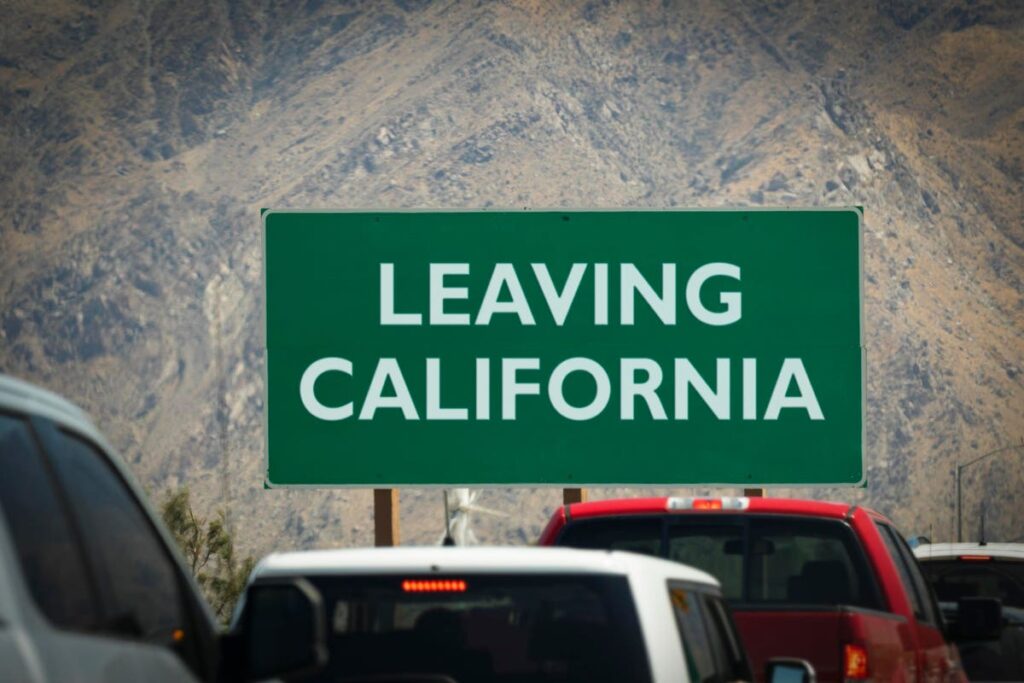If you live in California, leaving the Golden State and skipping California’s 13.3% rate can be alluring. It’s especially true if you are about to sell appreciated stock, crypto or your company. After all, California taxes ordinary income and capital gain at the same rates. Not long ago, a tax bill would have upped California’s top 13.3% rate to a whopping 16.8% for the highest income. But even without those proposed hikes, paying 13.3% in non-deductible state taxes (after the IRS $10,000 cap) is painful indeed.
You can leave for Nevada, Texas, Florida, Wyoming or other no-tax states, but if you aren’t careful, you could end up being asked to keep paying California taxes. In some cases, California can assess taxes no matter where you live. California’s tough Franchise Tax Board (FTB) monitors the line between residents and non-residents, and can probe how and when you left, and the burden is on you to show you are not a Californian.
If you are in California for more than nine months, you are presumed to be a resident, and more than six months usually means that too. Moving sounds easy, but if you aren’t careful how you do it, you could end up saying goodbye California high taxes, and hello residency audit. It pays to know what you are up against.
The IRS can audit 3 or 6 years, California can sometimes audit forever. California, like the IRS, gets unlimited time if you never file an income tax return. That can make filing a non-resident tax return—just reporting your California-source income as a non-resident—a smart move. California looks to objective factors to determine residency. Your time in California versus time outside counts. California uses a comparative analysis to see if you have closer connections to another state.
Many people who leave have unrealistic expectations and have a hard time distancing themselves from California. And make no mistake, in California tax disputes, procedure can be critical. In some cases, California can even assess taxes no matter where you live.
Many factors are relevant in assessing who is a California resident, but physical presence is the biggest issue. There are important presumptions too. For example, if you spend more than 9 months in California, you are presumed to be a resident. If you spend 6 months or less in California, you may qualify as a seasonal visitor, but that rule applies only if you don’t work while you are here and meet other rigorous tests.
What are some major mistakes people make when leaving? There are many, but here’s a sampling:
- If possible, don’t keep your home in California. If you have a home, ideally sell it, or at least rent it out. Otherwise it might look like it is ready for your return and can suggest that you intend that.
- Don’t keep prized possessions and memorabilia in California. It looks especially bad if you move out of state but your most important possessions remain in California. Even if you keep a home in California, move all your really important personal property to your new home out of state.
- Don’t move and move right back. Any move is supposed to be permanent. Your circumstances might change in the future, but you should operate on the assumption that this is a permanent move. Don’t post social media—or even tell friends and family—that you are moving to sell your stock or other assets but that you’ll be back in California soon.
- If possible, don’t move in the same year that you expect to sell assets such as stock or crypto. If you wait to sell until January, the part-year California tax return you file will show the entire year of income to California, even though you are only paying California taxes on the first part of the year’s income. If the FTB sees a big sale in the non-California part of the year, it is a tempting audit target.
- Don’t keep all your connections the same—simple items like voting, drivers license, car registration, and more. A good checklist appears here, so be careful.
- Don’t fail to consider an audit. Since California is notorious for pursuing people who move and conducting residency audits, you should plan ahead and be ready. Maybe it is karma, but if you assume that you won’t be audited and don’t plan for it, there’s a good chance you will be. Conversely, if you are really prepared, there’s a good chance you will be okay, whether you are audited or not.
- Don’t ignore income tax sourcing rules. Some kinds of income are California source income no matter what. A good example is a sale of California real estate. It is taxed by California even if you leave and are firmly rooted in another state before you sell.
- Don’t fail to count your days in and out of California. Count them for that year and for at least four years thereafter. Also keep track of days you are not in California or in your new state. Apart from minimizing days in California, always make sure you spend more days in your new state. Travel days in a third location can be challenged if it looks like your true home is still California.
- If you are audited, don’t handle it yourself. Hire a professional, ideally a tax attorney who knows of the numerous lurking dangers.
- Don’t ignore future California tax filings when required. If you file your last tax return for the year of your move, will you be a target? Sometimes yes, so consider if you are required to report California source income for future years as a nonresident. It can actually be an advantage to have some California source income, and to keep filing as a nonresident. That way, the statute of limitations will run on each year, and you’ll move seamless from filing a California return, to filing a nonresident return.
Read the full article here













